I’m at the home of Gevorg Manoukyan, the Armenian soldier who shot down an Azerbaijani helicopter on April 2 over the Artsakh Line of Contact.
His father Hovhannes is outside, in the yard of their house in the village of Hrom, in Armenia’s northern province of Shirak. He’s checking on the beehives, neatly stacked in rows. The weather still isn’t warm enough for the bees to go foraging in the fields.
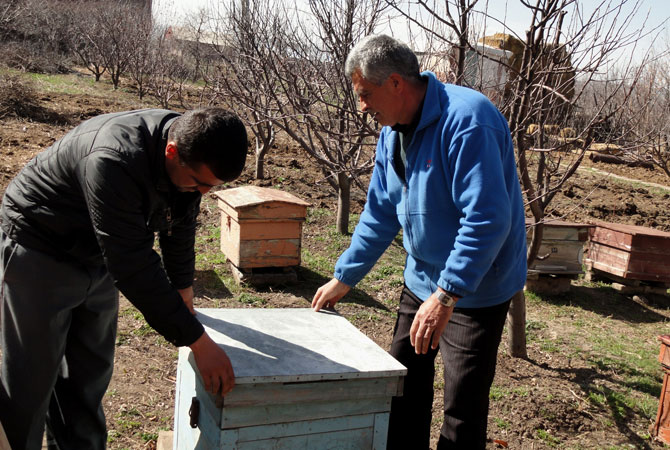
“Before Gevorg comes home, I’ll have time to send him some honey,” says a smiling Hovhannes. “He gets discharged in July. Just as long as god grants lasting peace and my boys returns safely. I will definitely invite you to the party.”
While Hovhannes consults with neighbors, who also have sons serving in Artsakh, his wife Rima invites me inside.
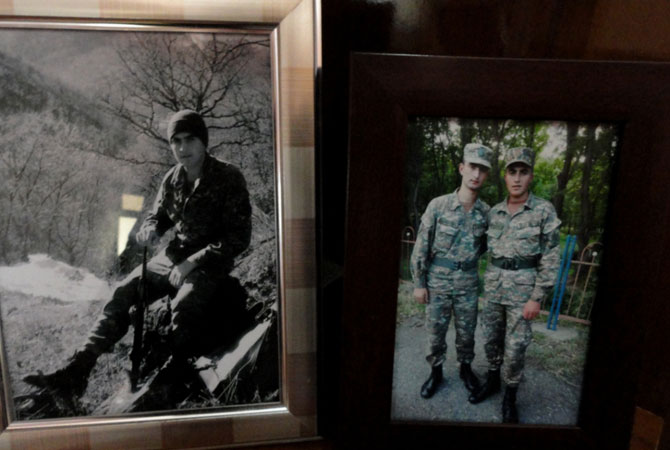
“Even as a child, my Gevorg would always say that we would serve in Karabakh, and with the Yeghnik unit,” says Rima, sighing.
Photos of Gevorg line the dresser in the living room. “I placed them like this so I could see my Gevorg every time I enter and leave. It’s like he never left,” she says. Hovhannes joins us. He has a look of concern on his face and is holding a piece of paper, with a name and a phone number.
“Our folk in the village have an expression – achkd luys (congratulations). But you really can’t fully be glad because your neighbor has no word about their son serving in the army. No one coming back has any news about their son. What can I say?” says Hovhannes.
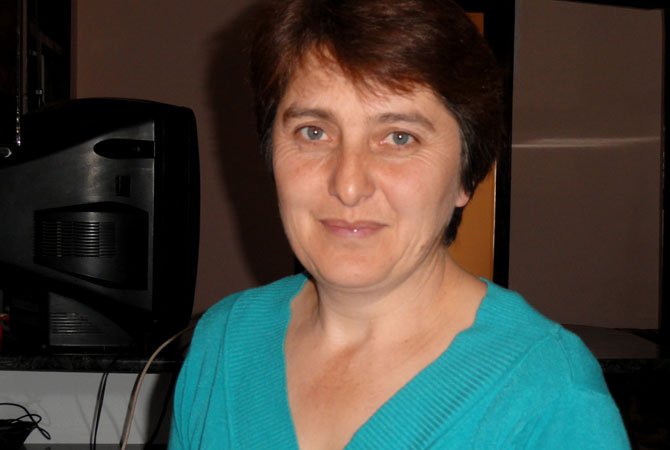 |
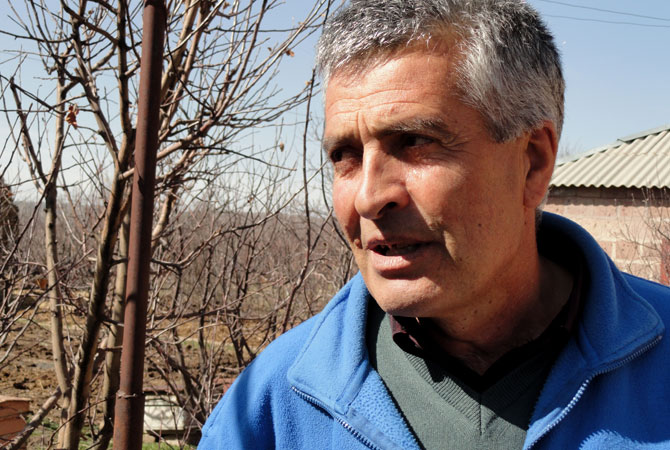 |
| Rima Manoukyan | Hovhannes Manoukyan |
Gevorg’s parents heard about their son’s daring deed via the internet. The son of a friend called them from Yerevan, saying that a Hetq cameraman recorded a video of Gevorg. True to his character, Gevorg didn’t speak for long.
“Yeah, he’s a modest boy. He’d rather talk through his actions,” says Rima. “He was always a responsible child and did well in school. He applied to the political science department at Yerevan State University but his marks weren’t good enough so he got accepted in the philosophy department,” says Gevorg’s mother.
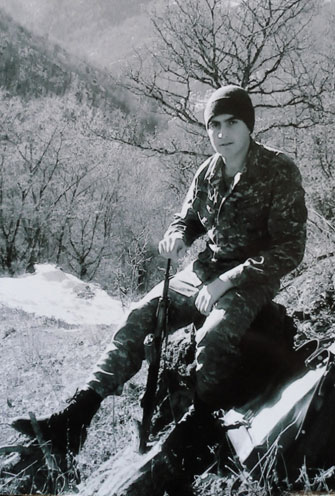 Gevorg visited his parents four times while in the army. The last time Mrs. Manoukyan spoke to Gevorg was in late February. She says that Gevorg didn’t want them to come and visit him in Artsakh.
Gevorg visited his parents four times while in the army. The last time Mrs. Manoukyan spoke to Gevorg was in late February. She says that Gevorg didn’t want them to come and visit him in Artsakh.
“I’ve yet to visit Karabakh, even though my son is serving there,” Hovhannes says. “Gevorg didn’t want us to go through the trouble of visiting. He even said that he wouldn’t meet us if we did.”
Gevorg born in 1996, is the youngest of the three children. His two older sisters are married.
When Mrs. Manoukyan says that Gevorg doesn’t have a sweetheart, Hovhannes’ brother Manouk is quick to point out that Gevorg has a number of candidates in mind.
“As to whether there’s someone special is hard to say. Gevorg is pretty tightlipped in general,” notes Uncle Manouk.
Manouk tells me that there are about 30 young men from the village serving in Artsakh; six from Gevorg’s graduating class alone. Village residents naturally follow the news from the frontline very closely.
“We’re anxious, but we don’t have the right to get disheartened. It’s the task of the villager to plow and sow the land, to create, so that our rearguard is strong and our army satiated,” notes Hovhannes.
As if remembering something, Hovhannes smiles.
“You know what my wife told me? She got mad and said that I should sign up and go to Karabakh as well. She said I didn’t have a right to stay home while our boy was in harm’s way. Woman, I told her, what will I do if I go? I’m all thumbs when it comes to guns. I’ll do my fighting here so that our rearguard is strong.”
 Videos
Videos Photos
Photos




Comments (1)
Write a comment